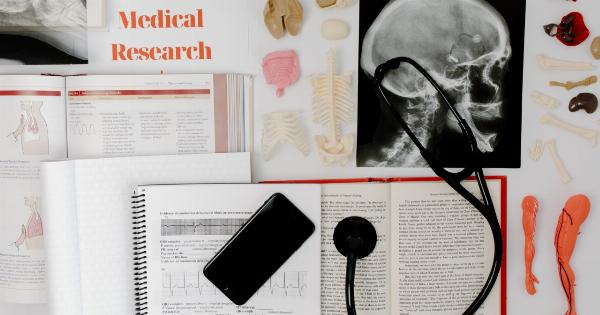Spermidine is a naturally occurring polyamine compound that is found in all living organisms, including plants, animals, and bacteria.
It plays a crucial role in several biological processes, from cell growth and differentiation to DNA synthesis and protein stability. In recent years, researchers have discovered that spermidine also possesses heart-protective properties, making it a subject of great interest in the field of cardiovascular health.
Spermidine and Heart-Health: Unveiling the Connection
The heart is one of the hardest-working muscles in the human body, pumping blood and supplying oxygen to every cell.
Over time, however, factors such as aging, genetics, and lifestyle choices can lead to the accumulation of cellular damage and the development of various cardiovascular diseases, including heart failure, arrhythmias, and coronary artery disease.
Scientists have long been searching for potential therapeutics to prevent or slow down the progression of these heart-related ailments.
The discovery of spermidine’s heart-protective effects has sparked considerable excitement in the scientific community. Studies have revealed that spermidine supplementation can significantly improve cardiac function and reduce the risk of heart-related mortality in experimental models.
The compound has been shown to reduce oxidative stress, inflammation, and the accumulation of harmful proteins in the heart, ultimately promoting a healthier cardiovascular system.
The Mystery of Spermidine’s Whereabouts
Given spermidine’s potential as a heart-protective compound, one might wonder where it hides within the body. Spermidine is naturally synthesized in cells, derived from the amino acid arginine.
However, our bodies can also obtain spermidine from external sources such as food. Foods rich in spermidine include soybeans, legumes, wheat germ, and aged cheese.
Spermidine and Aging: A Complex Relationship
As we age, the levels of spermidine in our bodies tend to decline. This decline may partly contribute to increased cellular damage and a higher risk of heart disease typically observed in older individuals.
Researchers have found that maintaining adequate spermidine levels through dietary means or supplementation can potentially slow down the aging process and promote better heart health.
Several studies conducted in animal models, including worms, flies, and mice, have shown that spermidine intake can extend lifespan and improve overall healthspan.
These findings indicate that spermidine might have broader health benefits beyond cardiovascular protection.
However, it is important to note that the effects of spermidine supplementation on aging and cardiovascular health in humans are still being actively researched.
Clinical trials are underway to determine the optimal dosage, safety profile, and long-term effects of spermidine supplementation specifically in humans.
Spermidine and Autophagy: A Cellular Cleansing Mechanism
Spermidine’s heart-protective effects are closely linked to its ability to induce a cellular process called autophagy.
Autophagy, which translates to “self-eating,” is a vital process that helps cells recycle damaged or dysfunctional components, promoting cellular repair and maintenance.
When autophagy is impaired, cells can accumulate toxic substances and damaged organelles, leading to oxidative stress, inflammation, and ultimately, organ dysfunction.
Spermidine has been shown to activate autophagy, facilitating the removal of these harmful substances and promoting cellular health.
Beneficial Effects of Spermidine on the Heart
Spermidine’s influence on autophagy has been particularly well-studied in relation to heart health.
Activation of autophagy in heart cells has been shown to reduce the risk of heart failure, improve energy production within the heart, and enhance overall cardiac function.
Furthermore, spermidine supplementation has demonstrated the ability to protect the heart against ischemia-reperfusion injury, a type of tissue damage that occurs when blood supply is temporarily interrupted and then restored.
Ischemia-reperfusion injury can lead to heart attacks and other severe cardiac conditions. Spermidine has shown promising results in reducing tissue damage and preserving heart function in animal models of this injury.
Interestingly, spermidine also exhibits anti-hypertrophic properties, meaning it can prevent or reduce heart muscle enlargement that often occurs in response to prolonged stress.
Hypertrophy can compromise heart function and increase the risk of heart failure. By suppressing hypertrophy and improving cardiac remodeling, spermidine helps maintain heart health and reduces the risk of cardiovascular diseases.
Guidelines for Spermidine Supplementation
If you’re considering adding spermidine to your daily routine, it’s important to approach it with caution. While spermidine is a naturally occurring compound, its long-term effects and optimal dosage are still being investigated.
As with any dietary supplement, it is advisable to consult with a healthcare professional before starting spermidine supplementation, especially if you have any underlying medical conditions or are taking medications.
It’s also worth noting that although spermidine-rich foods can provide a certain amount of the compound, achieving therapeutic levels through diet alone may be challenging. This is where supplementation may come into play.
Spermidine: A Potential Game-Changer in Cardiovascular Health
While research on spermidine is still ongoing, the compound shows tremendous promise as a heart-protective agent.
Its ability to stimulate autophagy, reduce oxidative stress and inflammation, and improve overall cardiac function make it an exciting area of exploration.
However, it is essential to await further clinical trials and studies to fully unravel the safe and effective use of spermidine in humans.
In the meantime, adopting a heart-healthy lifestyle, including a balanced diet and regular exercise, remains the cornerstone of cardiovascular disease prevention and management.
























